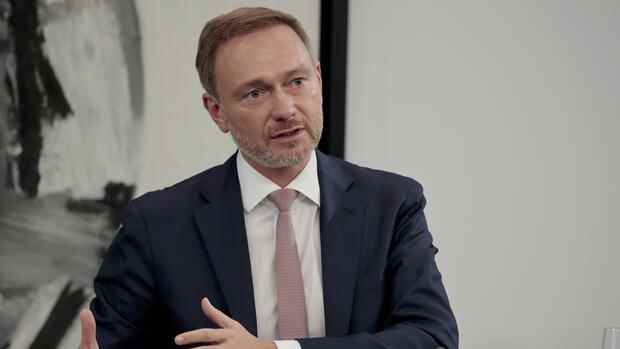The Federal Minister of Finance defended the relief package for the German economy as “not oversized”.
(Photo:𧉨-Berlin)
Luxembourg The federal government’s €200 billion relief package for the German economy has met with criticism from EU partners. Dissatisfaction with the generous aid for German companies extends from Budapest to Paris. At the same time, there are calls for a new European solidarity fund.
France’s finance minister Bruno Le Maire warned on Monday that the eurozone could fragment. Of course, each state can announce its own measures, but a common European strategy is needed, he said before the Eurogroup meeting in Luxembourg: “The more coordinated this strategy is, the better for all of us.”
In doing so, he indirectly repeated the criticism that his compatriot and EU Internal Market Commissioner Thierry Breton had already formulated on Friday evening. “While Germany can afford to raise 200 billion euros in the financial markets, other member states cannot,” Breton had tweeted. “We urgently need to think about how to give Member States that don’t have such fiscal space the ability to support their businesses.”
In Budapest, Hungarian Prime Minister Viktor Orban joined the critics even though his country is not in the euro zone. “It hit like a bomb when Germany announced that it would help its companies with hundreds of billions of euros,” he said at a press conference on Monday, according to the Financial Times.
Top jobs of the day
Find the best jobs now and
be notified by email.
The sanctions policy against Russia affects all European countries, but there is no common fund to compensate for the damage. This leads to the current situation: “The rich help their companies with enormous sums of money, while the poor cannot do this.” And Orban added: This is the “start of the self-mutilation of the EU”.
In fact, economists also see the danger that the crisis will exacerbate the differences between the euro countries. The International Monetary Fund (IMF) therefore recently proposed setting up a European stability fund based on the model of the Corona recovery fund. This is popular in some southern European countries, but Germany and other northern European countries are strictly opposed to renewed joint borrowing.
>> Read also: The economy is pushing for the relief package to be implemented quickly
For months, the Eurogroup has been discussing how economic policy can be better coordinated in order to prevent the states from drifting apart. With the “double boom”, the federal government is now giving its critics a through ball. Not only are the new billions in debt outsourced to a questionable shadow budget. They also appear to be flouting eurozone countries’ agreement to exercise fiscal prudence so as not to hamper the European Central Bank’s (ECB) fight against inflation. In a joint statement on Monday, the Eurogroup reaffirmed this goal.
EU Commission: Don’t help with the watering can
A clear warning also came from the EU Commission. Your recommendation is to provide targeted and temporary help and to coordinate the aid, said Commission Vice President Valdis Dombrovskis. The states could not continue to spend money according to the watering can principle: “We have to make sure that our measures do not run counter to the ECB’s inflation target of two percent.”
Federal Finance Minister Christian Lindner (FDP) found himself on the defensive. He defended the German crisis package as “reasonable” given the size of the German economy. The vast majority would not have noticed that the 200 billion euros should last until 2024 and ideally not be called up in full, he said. The package is “not oversized”.
>> Read also: European deposit insurance fails because of German resistance
Lindner also denied that he was fueling inflation. “Germany is not launching an economic stimulus package, Germany is not stimulating demand,” he said. You only dampen “ruinous price peaks”. “We remain neutral on fiscal policy stance.”
Nevertheless, with the relief package he is fueling the debate about solidarity and joint debts in the EU again. Even in their own coalition, desires are being raised again. The spokesman for the German Greens in the European Parliament, Rasmus Andresen, immediately called for “further coordinated and joint programs to prevent further economic drifting apart within the EU”. As a concrete proposal, he named an energy investment fund based on the model of the Corona reconstruction fund.
Currency Commissioner Paolo Gentiloni also emphasized that the current crisis shows parallels to the corona crisis. “We must avoid fragmentation of the eurozone,” he said. However, this is not the moment to blame one country or the other. Instead, the moment has come for more solidarity.
More: EU and UK want restart talks on Northern Ireland Protocol
